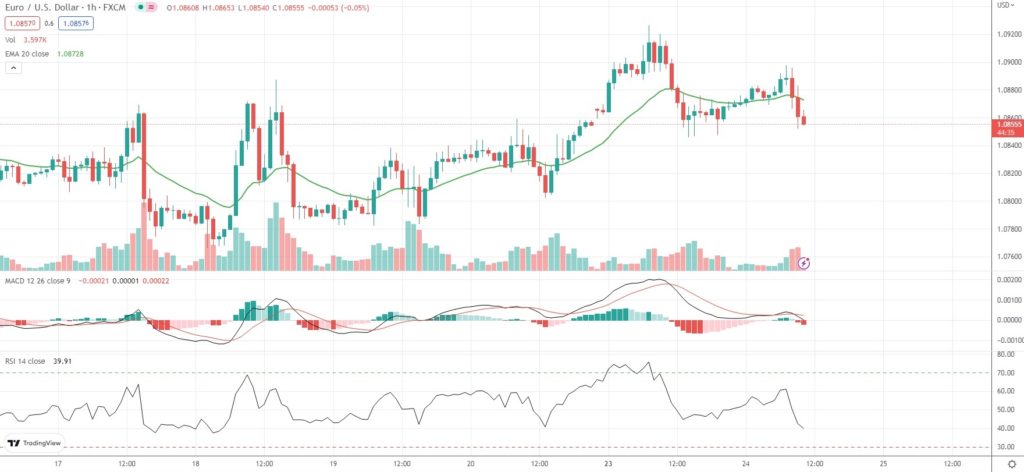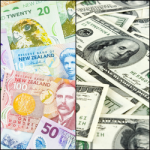EUR/USD traded in proximity to a fresh nine-month peak on Tuesday, as market players were weighing the chances of US economy entering a recession against the Federal Reserve’s monetary policy outlook.
Markets are now pricing two more 25 basis point rate hikes by the Federal Reserve this year and rates peaking at around 5% by June.
“The U.S. is no longer the cleanest shirt in the global economic laundry,” Ray Attrill, head of foreign exchange strategy at National Australia Bank, was quoted as saying by Reuters.
“That’s integral to our bearish U.S. dollar view, that the U.S. is not going to be the global growth leader.”
Attrill expects the EUR/USD pair to advance to 1.1000 by the end of March.
The Euro has been underpinned by remarks from European Central Bank officials that pointed to continuing aggressive tightening.
ECB President Christine Lagarde once again noted yesterday that interest rates would be raised quickly to curb persistently high inflation.
“President Lagarde has been among the hawks, and so we are comfortable with our call for 50bp increases at the next two meetings,” Commonwealth Bank of Australia strategist Joseph Capurso wrote in an investor note.
On the macroeconomic front, data showed on Tuesday Euro Area business activity surprisingly returned to modest growth last month, while activity in Germany’s services sector grew for the first time since June despite lingering price pressures.
As of 10:14 GMT on Tuesday EUR/USD was edging down 0.10% to trade at 1.0857, while moving within a tight daily range. Yesterday the major Forex pair went up as high as 1.0927, which has been its strongest level since April 21st 2022 (1.0936).
Daily Pivot Levels (traditional method of calculation)
Central Pivot – 1.0880
R1 – 1.0915
R2 – 1.0961
R3 – 1.0995
R4 – 1.1030
S1 – 1.0834
S2 – 1.0799
S3 – 1.0753
S4 – 1.0707






